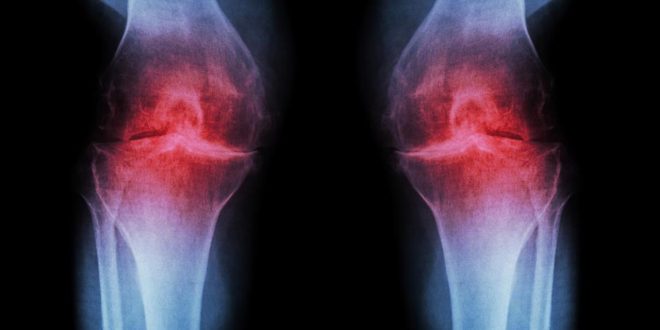By Itoro Victoria Oladokun
12 November 2023 |
11:00 am
Osteoarthritis is a common yet often misunderstood condition that affects millions of people around the world. It is a degenerative joint disease that can cause pain, stiffness, reduced mobility and even swelling, making even the simplest tasks challenging. However, understanding osteoarthritis and the factors to overcome it is crucial for managing the condition and improving…


Osteoarthritis is a common yet often misunderstood condition that affects millions of people around the world. It is a degenerative joint disease that can cause pain, stiffness, reduced mobility and even swelling, making even the simplest tasks challenging.
However, understanding osteoarthritis and the factors to overcome it is crucial for managing the condition and improving the quality of life for those affected.
What Is Osteoarthritis?
Osteoarthritis, often referred to as OA, is a chronic joint disease that primarily affects the cartilage, the protective tissue that covers the ends of bones in the joints.
Cartilage allows for smooth and pain-free movement, but in osteoarthritis, it gradually breaks down and deteriorates, leading to pain, inflammation, and reduced joint function. Osteoarthritis most commonly affects weight-bearing joints like the knees, hips, and spine, but it can also affect other joints in the body, such as the hands and feet.
Factors To Overcome Osteoarthritis
While osteoarthritis is a lifelong condition, there are several factors that can help individuals manage or alleviate their symptoms, slow down its progression, and improve their overall well-being these factors include:
Education And Awareness: The first step in overcoming osteoarthritis is to understand the condition. Knowledge is power, and learning about the causes, symptoms, and available treatments can empower individuals to take control of their health.
Lifestyle Modifications: Lifestyle plays a significant role in managing osteoarthritis. Maintaining a healthy weight, staying physically active, and adopting a balanced diet can reduce stress on the joints and improve overall joint health. Low-impact exercises like swimming, cycling, and walking can help build muscle strength and increase joint flexibility.
Physical Therapy: Physical therapists are essential allies in managing osteoarthritis. They can create customised exercise programs, teach pain-relief techniques, and help individuals improve their range of motion, strength, and balance.
Medications: Over-the-counter and prescription medications can help alleviate pain and inflammation associated with osteoarthritis. Common options include nonsteroidal anti-inflammatory drugs and analgesics.
Assistive Devices: Assistive devices such as braces, crutches and orthotics can provide support and reduce the strain on affected joints, improving mobility and reducing discomfort.
Surgery: In cases where conservative treatments are ineffective, surgical options may be considered. Joint surgeries like arthroscopy or joint replacement can be beneficial for individuals with advanced osteoarthritis, restoring joint function and alleviating pain.
Complementary Therapies: Some individuals find relief through complementary therapies like acupuncture, massage, or dietary supplements such as glucosamine and chondroitin. These approaches can be used in conjunction with conventional treatments.
Emotional Support: Living with osteoarthritis can be emotionally challenging. Support groups and counselling can help individuals cope with the psychological and emotional aspects of the condition. Mental health is an integral part of the overall well-being of those living with osteoarthritis.
Innovative Research: Ongoing research in the field of osteoarthritis is continuously uncovering new insights and treatments. Staying informed about the latest developments can open doors to more effective and less invasive therapies.
Osteoarthritis is a common, yet manageable condition that affects countless individuals worldwide.
By gaining a deeper understanding of osteoarthritis and the factors to overcome it, those living with the condition can reclaim their lives and maintain an active, fulfilling lifestyle.
Through education, healthy lifestyle choices, medical interventions, and emotional support, it is possible to minimise the impact of osteoarthritis and work towards a brighter, pain-free future.
 Top Naija News: Nigerian News, Breaking News Nigeria and World News Top Naija News is a daily news publication in Nigeria, delivering the latest breaking news in Nigeria and around the world.
Top Naija News: Nigerian News, Breaking News Nigeria and World News Top Naija News is a daily news publication in Nigeria, delivering the latest breaking news in Nigeria and around the world.




